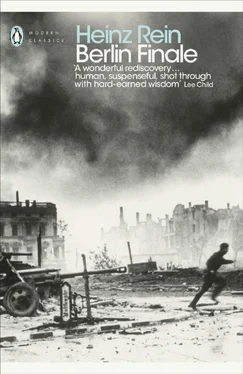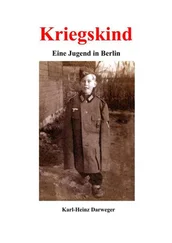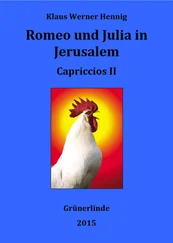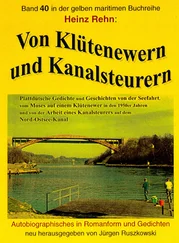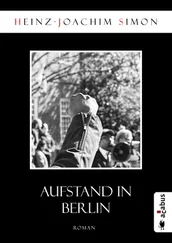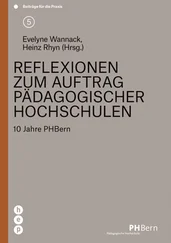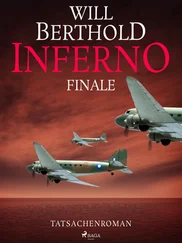‘You could stay here, Lucie,’ Wiegand says to his wife, ‘you’re safe here, and in good hands.’
Lucie Wiegand smiles at her husband and ties her turban tighter. ‘You don’t think I’m going to duck out now, do you, Fritz?’
‘That’s not ducking out…’ Dr Böttcher begins.
‘Fine,’ Lucie Wiegand says quickly, ‘then there’s nothing to think about.’
They slowly climb the cellar steps.
‘Wait!’ calls Private Ruppert. ‘I’m coming too!’
Lassehn carefully opens the cellar door and peers into the courtyard. The sky is a great vault of smoke, soot and smouldering haze, the artillery fire has become weaker and moved away a little, now the dominant sounds are the roar and rattle of tank tracks, the clatter of machine guns, the hard, dry reports of sub-machine guns, the brief cracks of rifles. Bullets whistle through hallways, ricochets whirr around.
‘The courtyard is clear,’ Lassehn says.
‘You’ve got to get through the hallway of the rear building, across the second courtyard and over the wall of the courtyard, and then you’ll be in the rear courtyard of 116 Wilhelmstrasse,’ Dr Wiedemann says.
‘Thanks,’ Dr Böttcher says, and shakes his hand.
‘Break a leg,’ says Dr Wiedemann.
Lassehn opens the door completely. They dash up the last steps of the cellar stairs, run across the courtyard through the dark hallway of the rear building, the second courtyard, surrounded on three sides by grey rear buildings, opens up in front of them, and there is the wall, the border between friend and enemy, but this time the terms have been reversed, the enemy is in fact the friend, and the friend is the enemy.
‘Slowly,’ Wiegand warns, stopping close behind Lassehn.
But the second courtyard is empty too. As if under a spell, they all slow down and stare keen-eyed at the wall, the fateful wall, that leads to the free country of the enemy.
‘In that case…’ Wiegand begins, but he says no more.
Six SS men swing over the wall, their hobnailed boots clatter on the stony floor, one of them stumbles and loses his sub-machine gun, behind them a few bullets whip into the masonry.
An icy shudder runs through Lassehn. To be caught like this at the last moment…
Wiegand seems quite calm, his face is a single taut muscle. He did flinch for a second, but he doesn’t move backward, which could be understood as flight.
Ruppert is about to open his mouth and say something, he has already turned halfway around, but Gregor grabs him hard.
‘Be quiet!’ he hisses.
‘Where do you think you’re going?’ an Unterscharführer says, slightly breathlessly.
‘Over there,’ Wiegand says, and points to the wall. ‘Reconnaissance mission.’
‘You can’t go there,’ says the Unterscharführer, ‘the Russians are there already.’
That’s why we want to, Schröter thinks grimly, and then these bastards have to go and get in our way. Just a…
‘Clear off,’ an SS man says. ‘Where have you been deployed?’
‘Here,’ says Wiegand, ‘between Anhalter and Hedemannstrasse.’ He turns round and winks at the others. ‘Right, everyone, back, march, march!’ He says goodbye to the SS men abruptly and sets off.
They stop in the hallway leading to Saarlandstrasse.
‘Bad luck,’ Wiegand says curtly, ‘but well done, it could have been worse. Great that none of us ran away, because that would have been that.’
‘What now?’ asks Private Ruppert. ‘Back to the boiler room?’
‘No, my dear Neukölln stogie salesman, now that we’re on our way, we’re going to keep going. If we can’t go up, we’ll have to go down.’
‘How do you mean?’ Ruppert says in disbelief.
‘Look, the houses all have gaps in the walls, and we’ll go through those,’ Schröter replies.
‘Fine, Schröter,’ says Dr Böttcher. ‘I’ve thought of that as well. Right, everyone back to the cellar, our good old Party comrade the air-raid warden will show us the gap in the wall that leads to Wilhelmstrasse.’
The air-raid warden is standing in the room outside the cellar in animated conversation with Dr Wiedemann, his face is bright red, he is gesticulating wildly with his arms and talking uninterruptedly at the doctor.
Dr Böttcher delivers a brief report, then turns to the air-raid warden. ‘Where is the gap that leads to Wilhelmstrasse?’
‘Leave me alone,’ the air-raid warden says grumpily. ‘There are more important things.’
‘Like what?’ Dr Böttcher asks.
‘Hitler’s supposed to be dead,’ Dr Wiedemann says and shrugs. ‘Whether it’s true…’
‘Hope so,’ Schröter says, and gives the air-raid warden a violent nudge in the ribs. ‘Come on then, you tried-and-trusted Party comrade, show us the mousehole, we want to go to the funeral of your great Führer.’ He lifts his rifle and holds it right under the nose of the air-raid warden. ‘You know I’m not going to put up with any nonsense?’
‘That’s… that’s…’ the air-raid warden pants.
‘Do what you like, my love,’ Schröter says, ‘as far as I’m concerned you can think what you like, I couldn’t give a damn, but you’re going to show me the gap.’
‘And if I don’t?’
‘Then you will die a hero’s death for your Führer on the spot,’ Schröter says, playing with the safety catch of his rifle.
‘This is violence!’ the air-raid warden gasps.
‘Of course!’ Schröter says fiercely. ‘What else?’
The air-raid warden opens his pursed, colourless lips very slowly. ‘Then come with me,’ he says furiously.
They walk down various dark passageways.
‘If you take us to…’ Schröter says threateningly and lights his face with the torch.
‘Stop that,’ growls the air-raid warden.
Then they are standing by a wall. It is a wall like a hundred thousand other cellar walls, casually whitewashed, brick on brick, hung with cobwebs, and yet it is a very special wall, with a big, dark patch in the middle, on which it says in black capitals: ‘Passageway to 116 Wilhelmstrasse.’
Lassehn grabs the pickaxe that hangs on a hook beside the passageway and starts striking the wall. At first there are only fragments of plaster and bits of brick, then a small hole appears, soon whole bricks are breaking away, the hole grows quickly. Lassehn works furiously, the pickaxe rains incessantly down on the wall.
The cellar on the other side is in deep darkness, a smell of mildew envelops him. Wiegand shines his torch: it is empty. Then the hole is big enough for them to climb through. Wiegand stands in front of the hole and stares into the darkness, pierced only by the narrow beam of light from his torch, he stands there motionless for several seconds. It is incredibly quiet down here.
Then firm footsteps ring out, suddenly there are strange sounds in the cellar. Standing in the beam from Wiegand’s torch is a Russian soldier, in a long, grey-green coat and wearing a white fur hat with a red Soviet star blinking brightly from it.
Wiegand takes a deep breath, then climbs skilfully through the hole in the wall and walks up to the Russian soldier.
‘ Tovarich ,’ he says in an excited voice and raises his hands in the air. The Russian soldier looks at him calmly, then twists his lips into a contemptuous smile and replies, ‘ Nix tovarich . Give watch. Davai! ’
‘Here and now begins a new era of world history and you can say you were there.’
Goethe, after the cannonade of Valmy (1792)
2 May
It is 5.30, the rays of the rising sun pierce the wall of cloud that stretches grey and bleak across the ruins of the city. On Vossstrasse, which connects Wilhelmplatz and Hermann-Göring-Strasse, a massive blanket rises slowly into the air, it rises clumsily and reluctantly like a drawbridge allowing access to a besieged fortress. This concrete blanket, which is lifted on Vossstrasse by hydraulic power, opens access to a cave, the last command post of the last Berlin Combat Commandant. It is surrounded on all sides, a detachment of Russian officers has taken up position, they raise their cocked sub-machine guns and aim at the entrance to the bunker, but they don’t need to make use of their weapons, because the first to appear is a soldier. Unshaven, rumpled, gaunt, he carries on the tip of his bayonet a scrap of white cloth. Only then do the others appear, Weidling, General of the Artillery, Supreme Commander of the Defence Zone of Berlin, in an immaculate uniform, with the collar fastened at the top and the Knight’s Cross, gold epaulettes with two stars and a row of medals, and only the untidily wrapped ankle garters reveal the unusual haste with which he has put them on, Ministerial Director Hans Fritzche, Goebbels’ protégé and imitator in word and tone, in a perfectly fitting elegant suit with sharp creases, and last of all the senior editor Dr Otto Kriegk, intellectual opinion maker and agitator of the Hugenberg company, in the olive-grey uniform of a leader of the Labour Service, with woven silver epaulettes. For a few seconds they stand there in silence and blink like owls into the light that falls upon them, then they clamber awkwardly into an armoured reconnaissance vehicle that stands ready a few metres away. The doors are closed, the vehicle sets off, turns into Hermann-Göring-Strasse and crosses Potsdamer Platz, it bellows its hoarse signals through the ruined streets, dashes down Saarlandstrasse, past the horrific skeletons of Potsdam and Anhalt Stations, hurries along Hallesches Tor and up the slope of Belle-Alliance-Strasse to Tempelhof. The vehicle drives recklessly over rubble and through potholes, it rattles its passengers against one another and bounces them off walls and ceilings, but no one says a word, their lips are pressed tightly together and their eyes half closed, every now and again the general takes his glasses off and rubs them clean, the broadcasting liar fiddles nervously with his tie, the opinion-making hack has collapsed entirely in on himself.
Читать дальше
